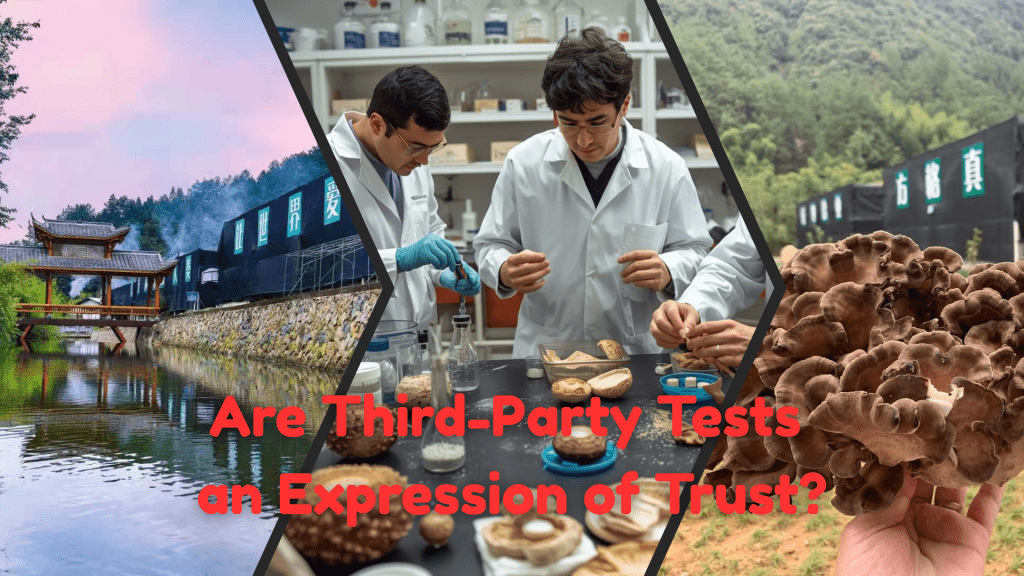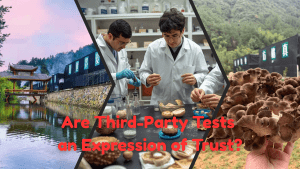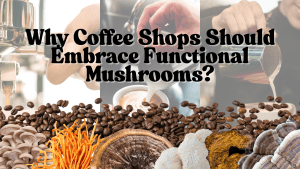The notion of trust, particularly in the consumer market, is a multifaceted and fragile construct. It is not something that is earned through a single transaction or a catchy marketing slogan. Instead, genuine trust is a dynamic process built not on fleeting claims or superficial badges, but on a robust foundation of consistent, ethical actions, transparent disclosures, and an unwavering, demonstrable commitment to quality that permeates every aspect of a brand’s operation.
Yet, in our modern world, where skepticism is a default setting and information overload is the norm, we’ve become accustomed to a curious and often transactional ritual: relying on “third-party tests” and certifications as a primary, sometimes the only, indicator of a product’s trustworthiness or a brand’s integrity. These external validations—whether they are laboratory reports, safety seals, or accredited certifications—serve as a powerful, easy-to-digest metric for consumers navigating a complex marketplace.
This reliance, however, compels us to pose a critical and deeper question: Are these third-party tests truly an expression of pre-existing trust, or are they a convenient, sometimes necessary, substitute for the genuine, relational connection that fundamentally needs to be established and nurtured between producers and consumers, between the brand and its audience? While third-party testing offers an objective, scientific benchmark and mitigates the inherent bias of self-reporting, its very necessity can be interpreted as a sign of a fragmented relationship. A brand that must rely solely on external validation to assure its quality risks signaling that its own word and internal processes are insufficient. Genuine trust, conversely, is built on an open dialogue, verifiable sourcing, and a willingness to stand behind a product even beforea third-party report is issued.
The risk lies in mistaking a certificate of compliance for a bond of trust. A test merely confirms a snapshot in time—that a product met certain specifications on a particular day. It does not certify the brand’s ethical supply chain, manufacturing consistency, labor practices, or long-term commitment to the customer’s well-being. These holistic components are what truly forge lasting brand loyalty and consumer confidence. Ultimately, while third-party tests are a vital tool for due diligence, they should function as a reinforcement of a brand’s intrinsic quality, not as a replacement for the transparent, consistent, and authentic corporate character that is the true bedrock of trust.
Think about the flat-screen TV in almost every home. How many of us took the trouble to search the manufacturer’s site for reports from independent testing agencies before buying it? For the vast majority of high-value consumer electronics, this level of detailed investigation is simply not feasible. Instead, we rely on a blend of brand reputation, reviews, word of mouth, and a quick glance at the specs. This behavior doesn’t indicate a lack of concern for quality; rather, it reflects a fundamental trust in established brands, a confidence that they wouldn’t compromise their standing with an inferior product.
So why, then, do we demand this external validation? Why do companies feel compelled to trumpet their “third-party tested” raw materials, turning them into a cornerstone of their marketing efforts? It’s as if we lack sufficient self-belief, needing an external arbiter to validate our claims before we dare to share them with the world.
In recent years, the trend has intensified. Marketing materials are increasingly “embellished” with pronouncements of “third-party tests” on everything from raw ingredients to finished products. A quick survey of 10 random websites offering such tests reveals a predictable pattern, one that leaves more questions than answers. Often, the details are vague, the methodologies unclear, and the results, if presented at all, lack the depth and transparency needed to inform genuinely.
This raises a critical ethical and strategic question for our industry: why do we perpetuate this cycle? Why do we allow companies and marketers to employ this “decoration” as a substitute for authentic trust-building? Genuine consumer trust is not a quick fix or a marketing slogan; it’s a genuine commitment. It is a laborious, long-term endeavor, meticulously constructed over years through:
- Countless actions: Consistent delivery of high-quality products, ethical business practices, and responsive customer service.
- Transparent articles and studies: Openly sharing research, production processes, and the science behind the products.
- Strategic partnerships: Collaborating with reputable organizations and experts who share a commitment to quality and transparency.
- Comprehensive disclosures: Broadcasting clear, honest information in every advertisement and publication, leaving no room for ambiguity.
Manufacturers, marketers, and raw material suppliers are obliged to instill a sense of security in consumers. Consumer trust is essential to this intricate process; it is a fundamental building block for shaping that critical feeling of security.
If we genuinely believe in the quality of our products and the integrity of our processes, then why do we resort to these measures? Why do we sometimes obfuscate the country of origin of raw materials, invent euphemisms that replace and obscure vital data, or strategically hide inconvenient truths from the consumer through legalistic and torturous language? The answers to these questions lie within each of us, and the courage to articulate them publicly would be a significant step forward.
At Mushroom Plenty, our philosophy is rooted in belief: the inherent quality of our products and complete transparency in our operations. We take immense pride in cultivating our mushrooms in China, a nation with a rich, multi-millennial mycological heritage. Our processes, which encompass growing, harvesting, drying, extracting, and more, and the creation of the world’s finest raw materials, are executed with unparalleled accuracy and transparency. We stand by our quality so entirely that we consume our products daily. We even enrich our children’s morning cereal with a generous amount of our mushroom powder, confident that we are giving them the absolute best.
We do not pride ourselves on third-party testing because we are both the first and third party. We pride ourselves on rigorous self-testing, confidence in our data, and an unafraid willingness to present it, even if it might not always align with the often-inflated claims of others.
We do not conceal the country of origin; we celebrate it.
China, the historical home of mushroom cultivation, offers unparalleled expertise, with generations of farmers for whom mushrooms are not just a crop, but a deeply ingrained cultural and spiritual connection. We source our mushrooms from the cleanest growing areas and farms worldwide, from a country that accounts for 95% of the world’s total mushroom production.
Our commitment to integrity is paramount; we steadfastly refuse to sell to anyone seeking what we do not genuinely offer.
Mushroom Plenty – we deliver mushroom wisdom.












